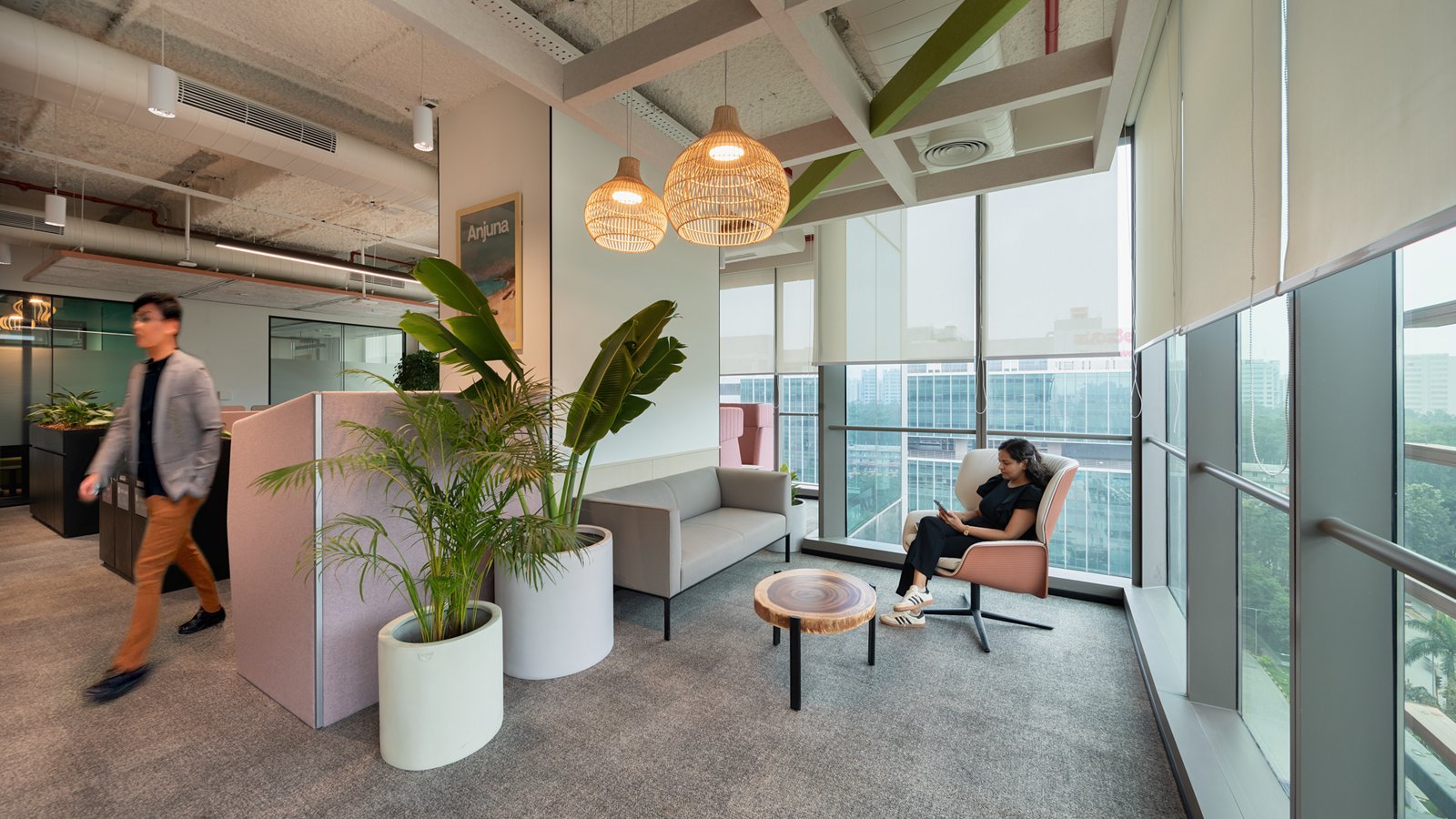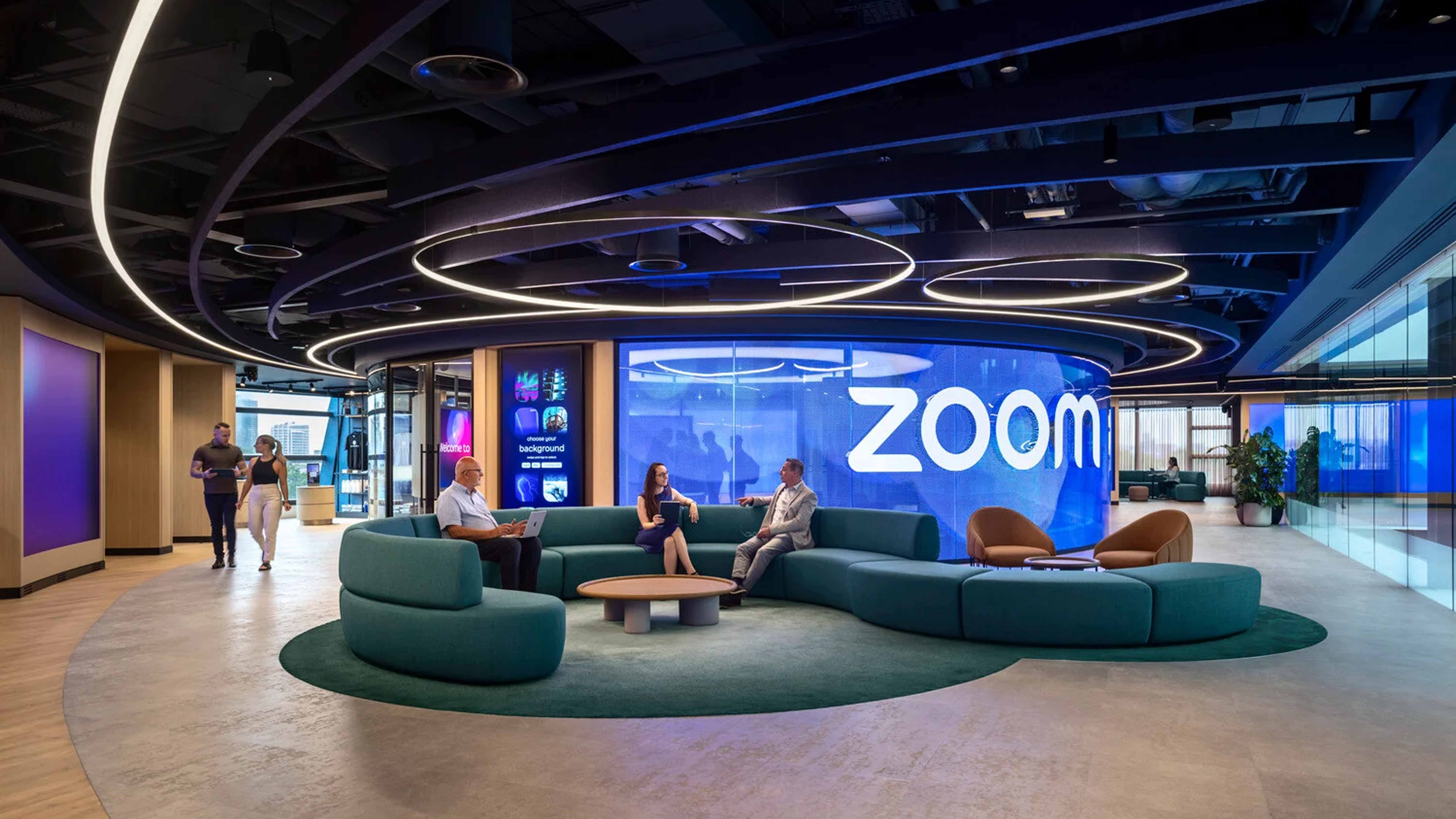India’s Workplace Revolution: The Human-Centric Design Transformation | Swatasiddha Majumdar Speaks to CoreNet Global Part 6

India’s workplaces are evolving at breakneck speed—and at the heart of this transformation lies a powerful realization: the future of work is human.
As Gen Z emerges as a driving force in the workforce, organizations are reimagining the workplace not just as a destination, but as a living, breathing ecosystem designed to support holistic wellbeing, cognitive performance, and purpose-driven collaboration.
In this sixth installment of our CoreNet Global series, Swatasiddha Majumdar, Principal – Strategy at Unispace India, explores the key insights from our 2024-25 Global Workplace Report, From Restriction to Resilience, and the recent whitepaper, Revolutionizing Workplaces: The Human-Centric Design Transformation.
From Cubicles to Conscious Design: A Generational Wake-Up Call
Traditional office layouts were born out of industrial efficiency. But Gen Z—digital natives who prioritize wellbeing, inclusivity, and meaning—is redefining what a workplace should be.
According to Unispace’s research:
- 35% of Gen Z employees struggle to stay active during the day (vs. only 20% of those aged 55+).
- 33% cite a lack of space to rest, recharge, and de-stress.
This is more than a generational preference—it’s a call to action. For Indian businesses competing for tomorrow’s top talent, human-centric workplaces are no longer a luxury. They’re a necessity.
 NielsenIQ, Pune, India
NielsenIQ, Pune, India
Designing for the Whole Human: What Human-Centric Means
Human-centric design places people—not square footage or cost-per-desk—at the core of workplace strategy. It recognizes employees as multidimensional individuals whose environment impacts not only how they work, but how they feel, connect, and grow.
India’s most forward-looking offices are being built around the five senses:
- Natural light to support circadian rhythms.
- Acoustic zoning for mental clarity.
- Tactile materials and textures that feel welcoming.
- Scented lounges that create calm.
- Curated soundscapes for focus or social energy.
These aren’t “extras.” They’re tools for cognitive performance and emotional wellbeing.

Flexibility by Design: Spaces That Flow With You
Gone are the days of one-size-fits-all desks. Today’s human-centric workplaces, especially in India, offer activity-based working environments with a mix of zones:
- Quiet pods for deep focus.
- Collaboration studios with movable furniture and writable walls.
- Learning lounges with relaxed tech setups.
- Social cafés designed for spontaneous connection.
At Takeda, Vietnam, this approach is fully realized—employees can choose from collaboration neighborhoods, individual nooks, and hybrid meeting hubs that support both virtual and in-person synergy.

Wellness is the New Workplace Currency
India is seeing a surge in workplace wellness initiatives—not just in philosophy, but in form:
- Meditation zones and yoga studios for mind-body alignment.
- Recharge pods with recliners, white noise, and ambient lighting.
- Mental health rooms with access to professional counselors.
- Healthy cafés with nutrition-forward menus and local produce.
At Carl Zeiss, Bangkok, this philosophy translates into a space with gaming zones, social areas, and cozy pods—all of which boost morale and engagement without sacrificing productivity.

Carl Zeiss, Bangkok
Biophilia & Nature-First Design
As Indian cities grow denser, biophilic design is bringing nature back to the workplace. Offices now feature:
- Vertical gardens and green walls.
- Water features to calm the senses.
- Natural materials like jute, terracotta, and bamboo.
- Lighting that mimics the sun’s natural rhythms.
These nature-forward spaces are delivering results—Unispace clients report 8–12% productivity gains and significant drops in stress indicators.

VaynerMedia, Singapore
Inclusion Is Built Into the Blueprint
Human-centric workplaces don’t just support the average—they embrace the entire spectrum of humanity.
India’s most progressive organizations are creating:
- Neurodiversity-friendly zones with low-stim environments.
- Prayer and reflection rooms that honor all faiths.
- Lactation areas and emergency childcare for working parents.
- Multi-generational design features that accommodate varying tech comfort levels and work styles.
Inclusivity is no longer a footnote. It’s foundational.

A Global Healthcare Company, Singapore
Powered by Technology, Personalised for People
Behind the scenes, the smartest human-centric workplaces are quietly powered by tech:
- Mobile workplace apps for booking desks, adjusting lighting, or finding colleagues.
- Smart environmental systems that auto-regulate air, light, and temperature based on real-time data.
- AI-driven analytics that track usage and employee behavior to inform better space planning.

These tools are making workplaces hyper-personalized, intuitive, and seamless—especially in India’s hybrid-first reality.
The ROI of Care: Why It Makes Business Sense
It’s not just about feeling good—it’s about performing better:
- Companies with human-centric workplaces report up to 40% higher employee engagement.
- Talent retention rises by 23–31%, saving millions in rehiring costs.
- Inclusive, wellness-oriented spaces enhance employer branding—especially when job seekers are doing virtual tours.
In India’s booming knowledge economy, where top talent has options, your workplace is your brand.

ANSR, Bangalore
What’s Next: Toward Fluid, Future-Ready Ecosystems
As India accelerates into the future of work, several trends are emerging:
- Ambient intelligence: Offices that learn and adjust to individual needs in real time.
- Mixed reality collaboration: Virtual meeting spaces that feel physical.
- Climate-resilient design: Self-sustaining workplaces that double as community anchors during extreme weather.
Above all, we’re witnessing the dissolution of rigid categories—workplace meets hospitality, home meets office. The result? Spaces that are more human, fluid, and meaningful than ever before.
Final Word: The Future of Work Feels Different
“The most successful workplaces are not those with the most amenities, but those that understand their people best.” — Swatasiddha Majumdar
The human-centric design revolution is underway—and India is leading the charge. The organizations that embrace this shift are not only creating better workplaces. They’re creating better futures.














About Swatasiddha Majumdar, Principal, Strategy, India

Swatasiddha Majumdar is the Principal, Strategy at Unispace India, a global design and build firm that specializes in workplace strategy, design, project management, and construction. With over two decades of professional experience, Swatasiddha leads the strategic initiatives at Unispace, where he focuses on architecture, workplace strategy, and project integration management.
He holds a Bachelor of Architecture & Planning from the Indian Institute of Technology, Roorkee (1996-2001) & Postgraduate in Advanced Programme in Product Marketing from Indian Institute of Management, Calcutta.
Follow Swatasiddha Majumdar on LinkedIn.
-2.jpg?width=383&height=348&name=Conoco_Phillips_Unispace_Finbarr_Fallon_04%20(1)-2.jpg)

